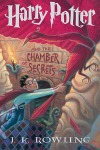I found a blog this week on what it was like for J.K. Rowling when she was writing the Harry Potter series. I’ll just post part of it here, but for the rest follow this link to the original site: https://thefriendlyeditor.com/2015/06/16/rowling-writing-harry-potter/
What It Was Really Like to Write Harry Potter
First, we need to appreciate how disciplined Rowling had to be to develop her story nugget into seven hefty books. We have to know that she wasn’t lazily sipping mochas for two decades while jotting down a continuous stream of words like the literary Fountain of Youth.
All too often we convince ourselves that we would write more if only we were well-known, or had more money, or could find more time. But none of that is what makes a writer. It’s simply that a writer writes.
Below I’ve compiled the oft-forgotten, non-fairy-tale version of the story behind Harry Potter.
A writer who waits for ideal conditions under which to work will die without putting a word on paper. —E. B. White Tweet
Book One: Harry Potter and the Sorcerer’s Stone

Even though Harry Potter strolled into Rowling’s head fully formed, she still spent several years mapping out the seven books, and then she spent another year writing the first one, Harry Potter and Sorcerer’s Stone. Rowling rewrote Chapter One so many times (upwards of fifteen discarded drafts) that her first attempts “bear no resemblance to anything in the finished book”—which was especially frustrating since Rowling was a single parent and her writing time was entirely contingent on her infant daughter, Jessica.
Whenever Jessica fell asleep in her [stroller], I would dash to the nearest café and write like mad. I wrote nearly every evening. Then I had to type the whole thing out myself. Sometimes I actually hated the book, even while I loved it.
Rowling also had to waste her already limited time on nuisances like re-typing an entire chapter because she changed a paragraph or, even worse, re-typing the entire manuscript because she hadn’t double-spaced it.
Besides writing, Rowling struggled with many personal problems: the death of her mother, estrangement from her father, a volatile and short-lived marriage, a newborn child, life on welfare, and a battle with clinical depression. Unfortunately, Rowling’s support system was nearly nonexistent. She once told a friend about Harry Potter and her friend’s response was typical.
I think she thought I was deluding myself, that I was in a nasty situation and had sat down one day and thought, I know, I’ll write a novel. She probably thought it was a get-rich-quick scheme.
Rowling grappled with suicidal thoughts and eventually turned to therapy for help.
Once the manuscript was finally finished, Rowling collected a dozen rejection letters over a full year before Bloomsbury Publishing picked it up. Even then, Rowling was warned by her literary agent to find a job because her story wasn’t commercial enough to be successful. (“You do realize, you will never make a fortune out of writing children’s books?”)
Bloomsbury’s expectations of Harry Potter were so low that its initial print was only five hundred copies—three hundred of which were donated to public libraries.
Rowling’s first royalty check was six hundred pounds. A year later, she was a millionaire.
You’d fail only if you stop writing. —Ray Bradbury Tweet
Book Two: Harry Potter and the Chamber of Secrets

Both Rowling’s agent and Bloomsbury Publishing had to (happily) eat their words. Harry Potter and the Sorcerer’s Stone was so popular in the U.K. that Scholastica paid an unprecedented $105,000 for the American rights to the series. Rowling, however, still faced major frustrations.
For one, Rowling didn’t believe her success would stick. While writing Chamber of Secrets, she worked as a full-time French teacher (while still caring for her now-toddler daughter).
Rowling also suffered from her first and only debilitating bout of writer’s block.
I had my first burst of publicity about the first book and it paralysed me. I was scared the second book wouldn’t measure up . . .
Other lucrative contracts rolled in after Scholastica, which pulled Rowling out of poverty but also forced incredible pressure on her “to fulfill expectations.” Furthermore, the sudden deluge of money brought on a “tsunami of requests.” Everyone was asking Rowling for a financial leg up, and she panicked.
I was completely overwhelmed. I suddenly felt responsible in many different ways. . . . I was downright paranoid that I would do something stupid . . .
A professional writer is an amateur writer who did not quit. —Richard Bach Tweet
Credit- https://thefriendlyeditor.com/2015/06/16/rowling-writing-harry-potter/
